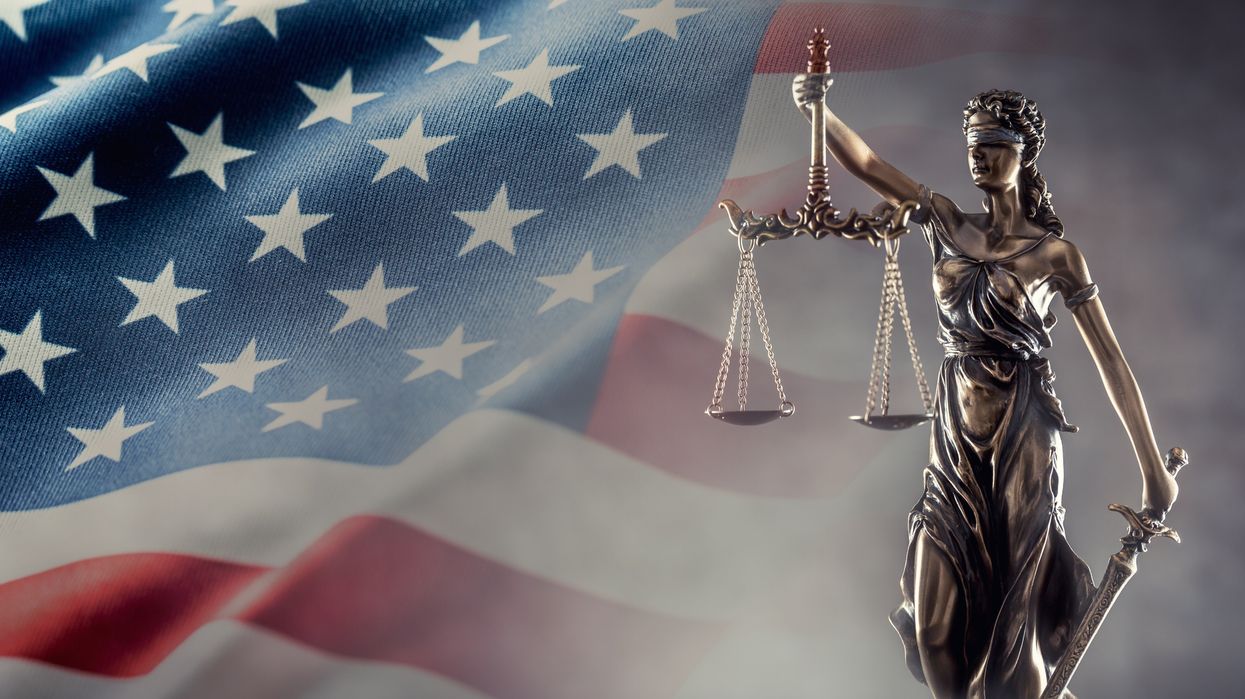Lawyers Defending American Democracy invites you to attend a free webinar, “When Lawyers Attack the Rule of Law,” on Wednesday, Sept. 18 at 2 p.m. Pacific (5 p.m. Eastern).
Please register for this important webinar.
This special event will feature a timely conversation between UCLA School of Law professor Scott Cummings and Boston Globe senior opinion writer and columnist Kimberly Atkins Stohr about the ways in which lawyers enable — and are complicit in — the creation of autocracies.
Cummings was named a 2023 Guggenheim fellow to study the role of lawyers in backsliding democracies. Stohr is an on-air political analyst for MSNBC, frequent panelist on NBC's “Meet the Press” and co-host of the legal news podcast “#SistersInLaw.”
In June 2024 Cummings warned about the danger we face:
“In recent years, scholars have focused significant attention on the fading fortunes of democracy around the world. This decline has occurred at the hands of new legal autocrats who dismantle democracy not through violent coups but rather through ostensibly legal actions—like changing the rules of judicial selection and elections—that undermine institutional checks on executive power. Yet while this literature helpfully spotlights law as an essential tool of democratic backsliding, it has largely ignored the actors who wield this tool: lawyers. This is a significant omission since, as the Stop the Steal campaign to overturn the 2020 U.S. presidential election revealed, lawyers serve as crucial gatekeepers to legal institutions targeted by autocrats (like courts and the attorney general’s office) and are necessary to design and execute legal plans to circumvent constitutional requirements (like election certification and the peaceful transition of power). Precisely because lawyers are guardians of the legal legitimacy upon which autocratic legalism depends, the profession is a critical arena of democratic struggle that merits special attention.
“Rule-of-law attacks like Stop the Steal do not occur in a vacuum. They are manifestations of a deeper democratic malaise. That malaise is a product of structural forces that occur over long time horizons and affect the profession, reshaping lawyer norms and practices in ways that can create conditions of possibility for rule of law attacks to occur.
“One such norm, central to the rule of the law, is professional independence. Because lawyers control access to legal institutions, they serve the critical role of screening legitimate legal claims. Public lawyers—prosecutors and government legal advisors—have special obligations in this regard, guaranteeing that when legal decisions have a policy impact, they are made in the public interest and not for partisan advantage.”
Lawyers have essential roles to play in the struggle to protect and defend our democracy. Join this important webinar to learn more.




















Trump & Hegseth gave Mark Kelly a huge 2028 gift